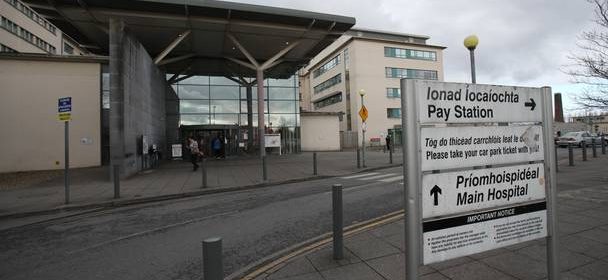Only third of women seen in two-week screening deadline

Hundreds of women and men who need investigations for suspected cancer symptoms are not being diagnosed within recommended time limits, a new HSE performance report has revealed.
The long-delayed report showed only a third of women who should be assessed urgently in a breast cancer clinic were seen within the two-week deadline by University Hospital Galway.
Many other women who need assessment in breast cancer clinics and are deemed non-urgent are also not getting appointments within a 12-week limit.
Only one in five women were assessed within 12 weeks in University Hospital Waterford.
St James’s Hospital, Dublin, only saw four in 10 non-urgent women on time and University Hospital Galway only achieved the target for one in two women referred for assessment.
The report shows several hospitals also not giving appointments on time to patients referred for possible lung cancer.
Just five out of eight hospitals met the target of 10 working days, with Cork University Hospital, University Hospital Limerick, and University Hospital Waterford suffering delays.
Men in need of investigation for possible prostate cancer should be screened within 20 days but only one in three were seen in that time at St James’s Hospital, Dublin.
Other delays in giving radiotherapy treatment outside of a time limit of 15 days were also seen in Altnagelvin Hospital in Derry, which treats patients from Co Donegal.
There were also time breaches in University Hospital Galway and St Luke’s Hospital in Dublin.
Failure to recruit and retain enough specialists is contributing to the delays.
The report revealed that Dublin Midlands Hospital Group had to issue a performance notice to St James’s Hospital in Dublin about its failure to meet access targets in its breast cancer clinic.
St James’s Hospital is the biggest hospital in the State and also has the largest cancer department.
It also had difficulty meeting targets to see patients who took part in BowelScreen, the free programme which invites people to test for possible bowel cancer symptoms.
It suffered a deterioration in performance between March and August, which was mainly due to equipment failure and other capacity issues.
It said the lack of key staff contributed to its problems in the BowelScreen programme.
The hospital has since put an improvement plan in place for both of these clinics.
The total number of cancers diagnosed annually continues to increase as the population grows and ages.
Rates of the top three major cancers in men – prostate, colorectal and lung – are now declining or static.
Rates of female breast cancer have fallen since 2008, though lung cancer rates in women are still rising.
These trends broadly reflect a range of public health and early diagnosis initiatives in Ireland.
Source: Read Full Article